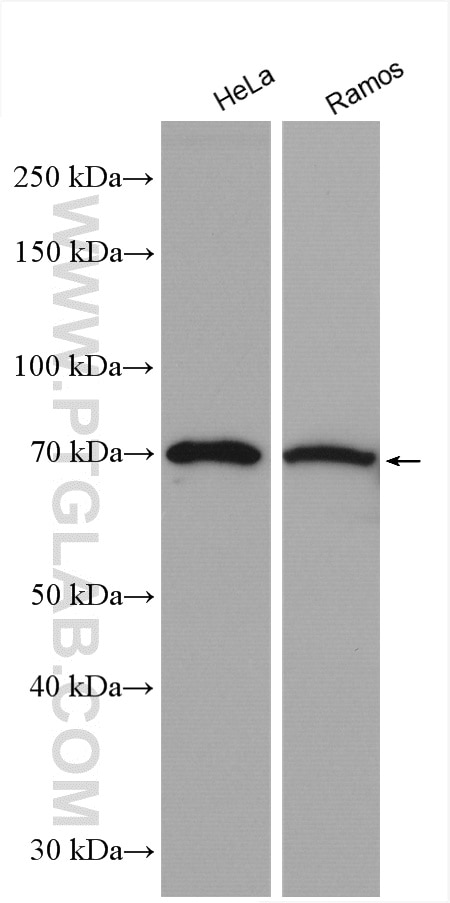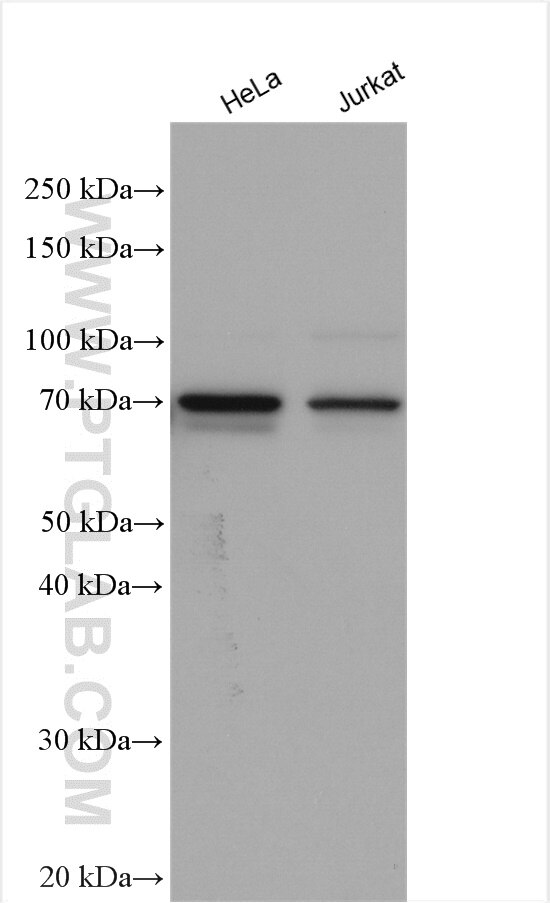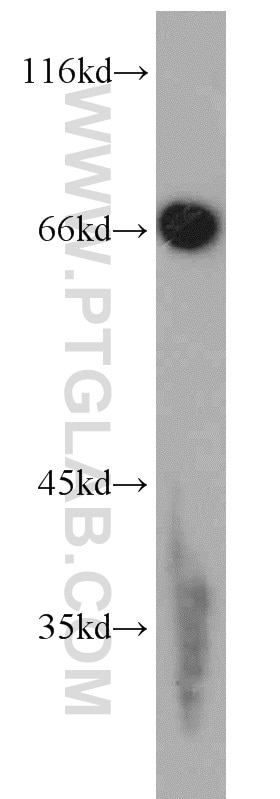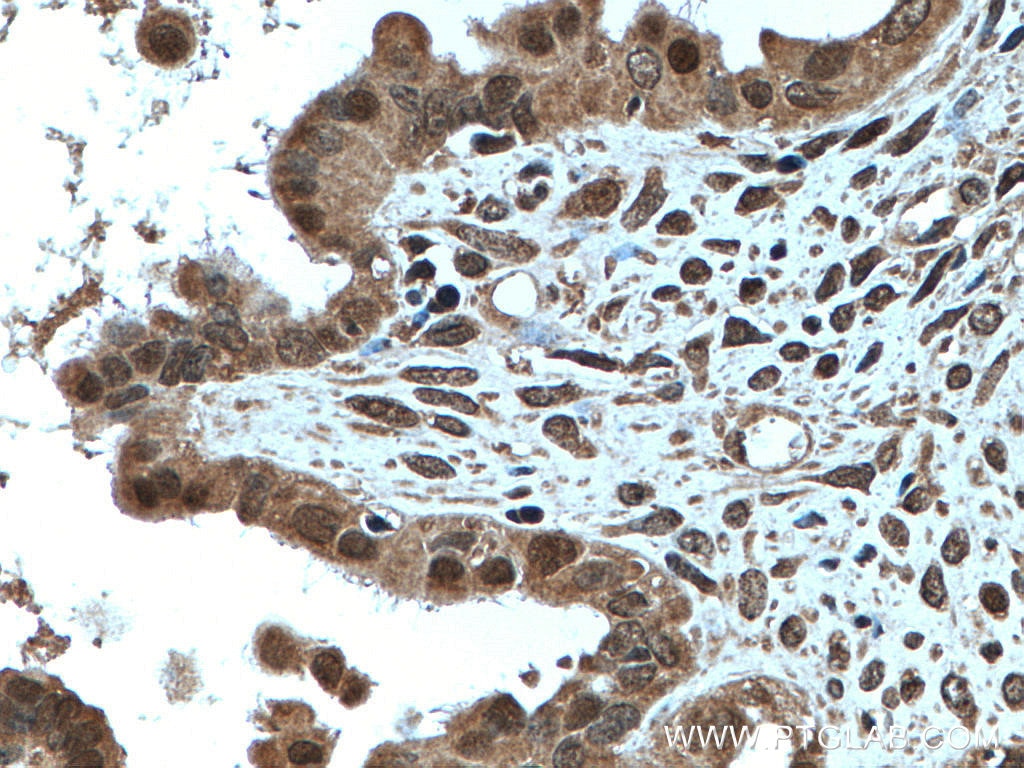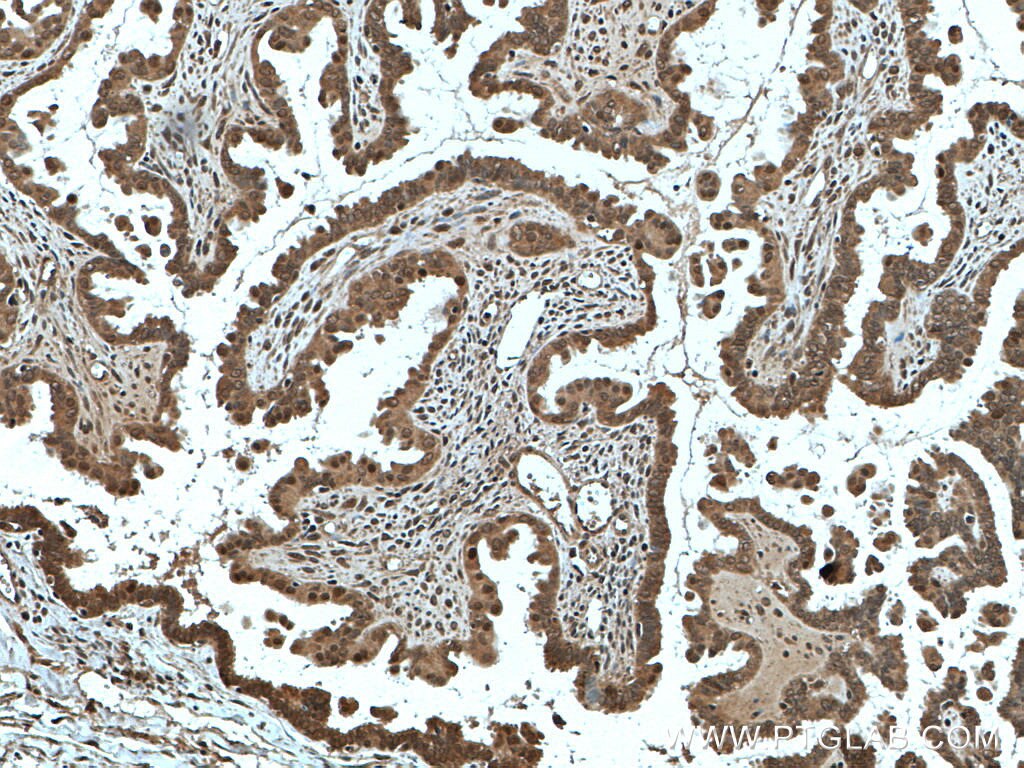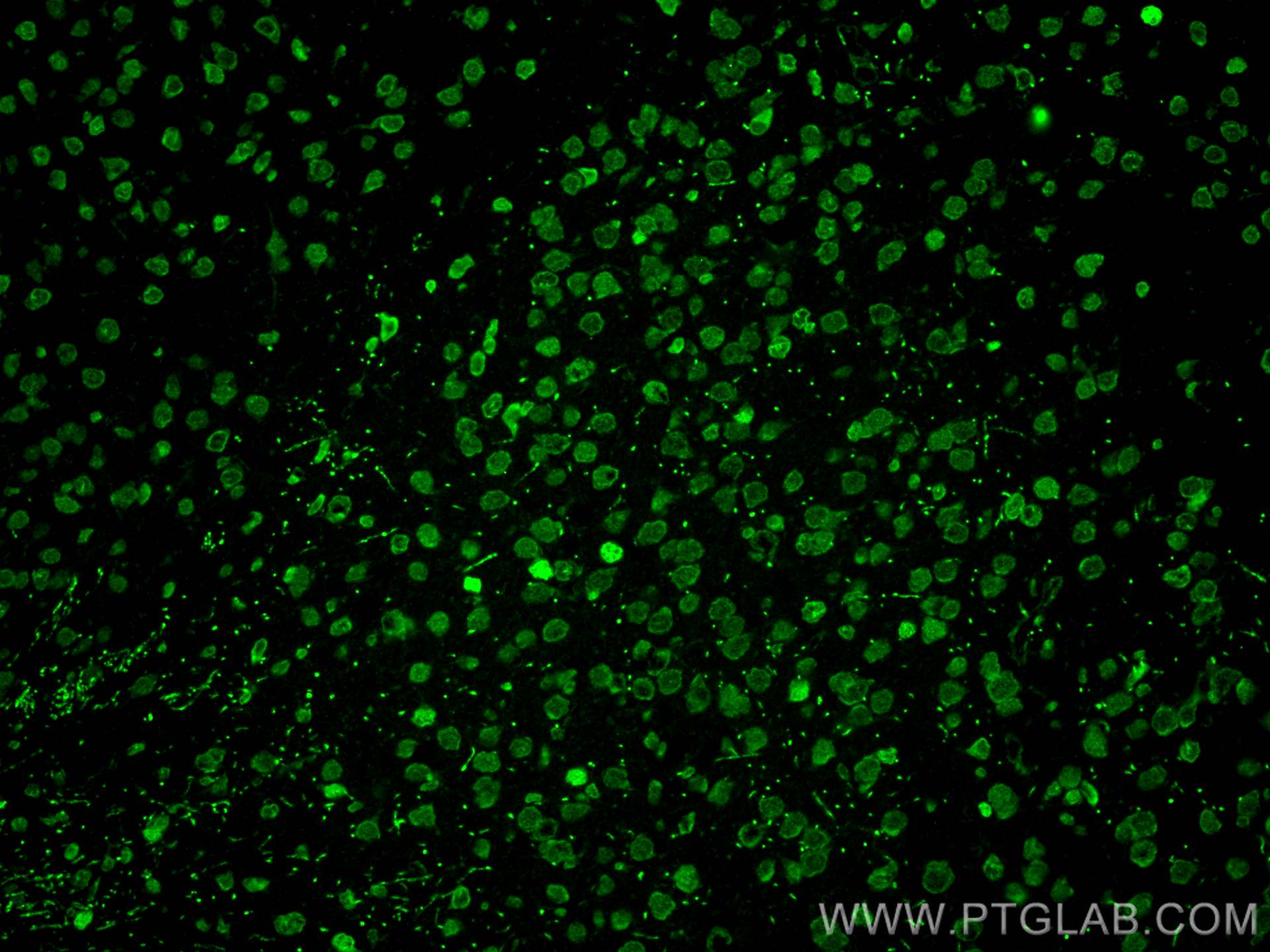Tested Applications
| Positive WB detected in | HeLa cells, RAW264.7, Jurkat cells, Ramos cells |
| Positive IHC detected in | human ovary tumor tissue Note: suggested antigen retrieval with TE buffer pH 9.0; (*) Alternatively, antigen retrieval may be performed with citrate buffer pH 6.0 |
| Positive IF-P detected in | mouse brain tissue |
Recommended dilution
| Application | Dilution |
|---|---|
| Western Blot (WB) | WB : 1:1000-1:5000 |
| Immunohistochemistry (IHC) | IHC : 1:50-1:500 |
| Immunofluorescence (IF)-P | IF-P : 1:50-1:500 |
| It is recommended that this reagent should be titrated in each testing system to obtain optimal results. | |
| Sample-dependent, Check data in validation data gallery. | |
Published Applications
| KD/KO | See 6 publications below |
| WB | See 39 publications below |
| IHC | See 9 publications below |
| IF | See 9 publications below |
| IP | See 1 publications below |
| ELISA | See 1 publications below |
| ChIP | See 3 publications below |
Product Information
22008-1-AP targets EGR1 in WB, IHC, IF-P, IP, ChIP, ELISA applications and shows reactivity with human, mouse samples.
| Tested Reactivity | human, mouse |
| Cited Reactivity | human, mouse, rat |
| Host / Isotype | Rabbit / IgG |
| Class | Polyclonal |
| Type | Antibody |
| Immunogen | EGR1 fusion protein Ag13395 Predict reactive species |
| Full Name | early growth response 1 |
| Calculated Molecular Weight | 543 aa, 58 kDa |
| Observed Molecular Weight | 70-80 kDa |
| GenBank Accession Number | BC073983 |
| Gene Symbol | EGR1 |
| Gene ID (NCBI) | 1958 |
| RRID | AB_11182923 |
| Conjugate | Unconjugated |
| Form | Liquid |
| Purification Method | Antigen affinity purification |
| UNIPROT ID | P18146 |
| Storage Buffer | PBS with 0.02% sodium azide and 50% glycerol , pH 7.3 |
| Storage Conditions | Store at -20°C. Stable for one year after shipment. Aliquoting is unnecessary for -20oC storage. 20ul sizes contain 0.1% BSA. |
Background Information
EGR1, also named as Early growth response protein 1, is a 543 amino acid protein, which belongs to the EGR C2H2-type zinc-finger protein family. EGR1 as a transcriptional regulator recognizes and binds to the DNA sequence 5'-GCG(T/G)GGGCG-3'(EGR-site) in the promoter region of target genes and binds double-stranded target DNA, irrespective of the cytosine methylation status. EGR1 regulates the transcription of numerous target genes, and thereby plays an important role in regulating the response to growth factors, DNA damage, and ischemia. EGR1 activates expression of p53/TP53 and TGFB1, and thereby helps prevent tumor formation and plays a role in the regulation of cell survival, proliferation and cell death. Egr1 is suggested to be a 55-kDa protein according to the translation of its coding sequence. Analysis of cytoplasmic and nuclear fractions of normal and irradiated native CNS tissue by Western blotting revealed a 110-kDa band for Egr1 localized in the cytoplasm and a 75-kDa version for the nuclear Egr1(PMID: 17497096).
Protocols
| Product Specific Protocols | |
|---|---|
| WB protocol for EGR1 antibody 22008-1-AP | Download protocol |
| IHC protocol for EGR1 antibody 22008-1-AP | Download protocol |
| IF protocol for EGR1 antibody 22008-1-AP | Download protocol |
| Standard Protocols | |
|---|---|
| Click here to view our Standard Protocols |
Publications
| Species | Application | Title |
|---|---|---|
Adv Sci (Weinh) SREBP1c-Mediated Transcriptional Repression of YME1L1 Contributes to Acute Kidney Injury by Inducing Mitochondrial Dysfunction in Tubular Epithelial Cells | ||
Dev Cell PDGF signaling inhibits mitophagy in glioblastoma stem cells through N6-methyladenosine.
| ||
Mol Ther Nucleic Acids Genetic or siRNA inhibition of MBD2 attenuates the UUO- and I/R-induced renal fibrosis via downregulation of EGR1.
| ||
Pharmacol Res Discovery of a novel megakaryopoiesis enhancer, ingenol, promoting thrombopoiesis through PI3K-Akt signaling independent of thrombopoietin. | ||
Inflammation PD-L1 Expression Is Increased in LPS-Induced Acute Respiratory Distress Syndrome by PI3K-AKT-Egr-1/C/EBPδ Signaling Pathway | ||
J Cell Mol Med EGR1 promoted anticancer effects of Scutellarin via regulating LINC00857/miR-150-5p/c-Myc in osteosarcoma.
|
